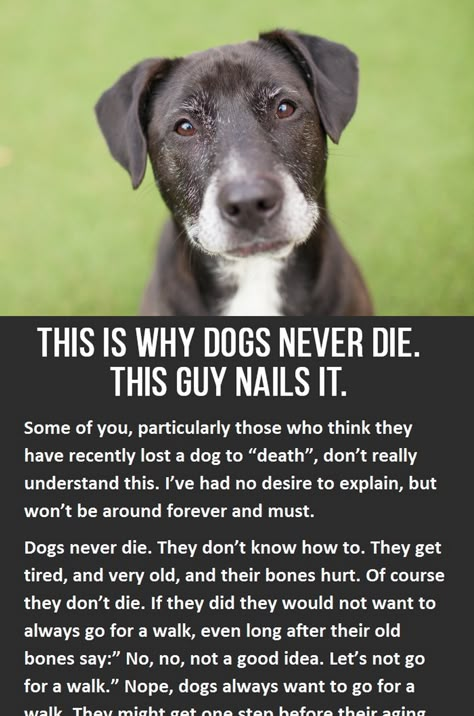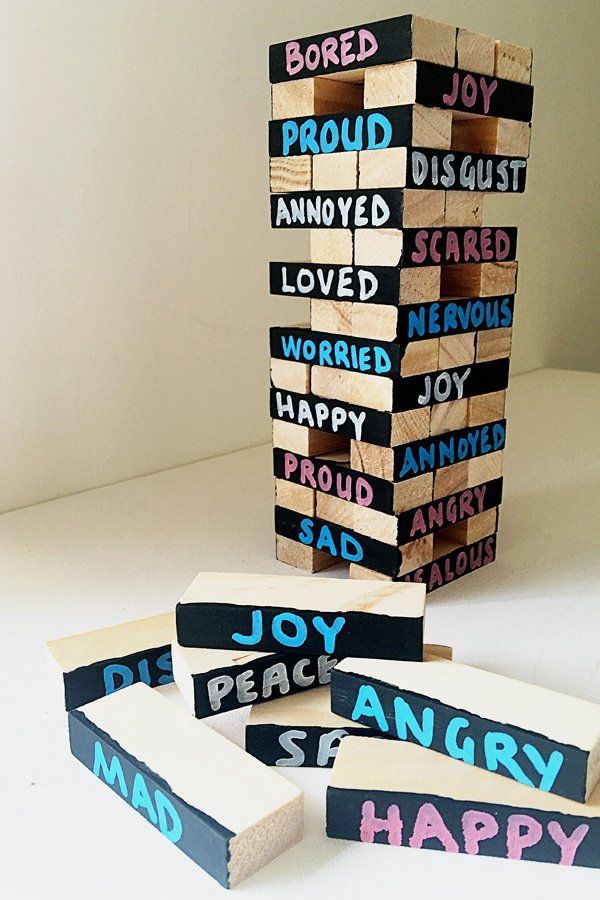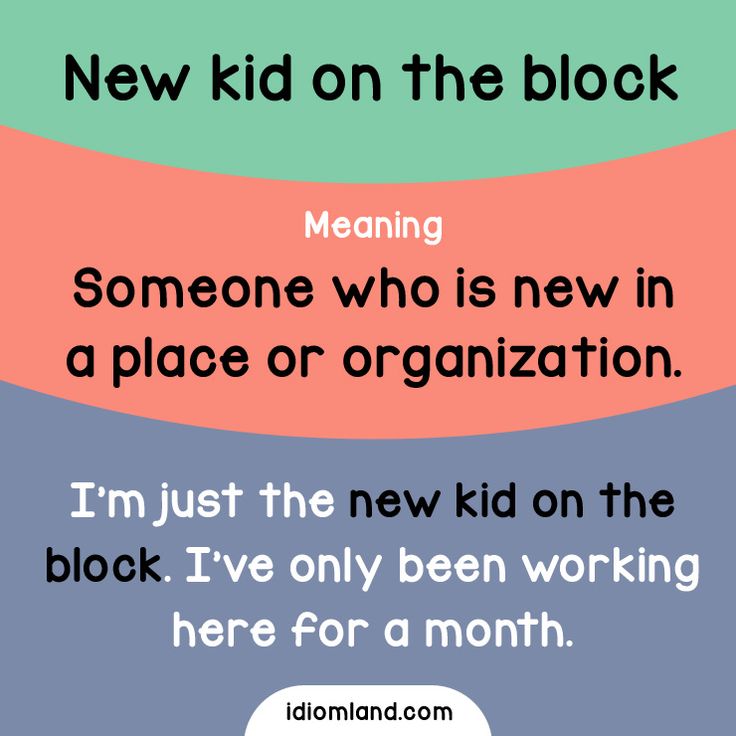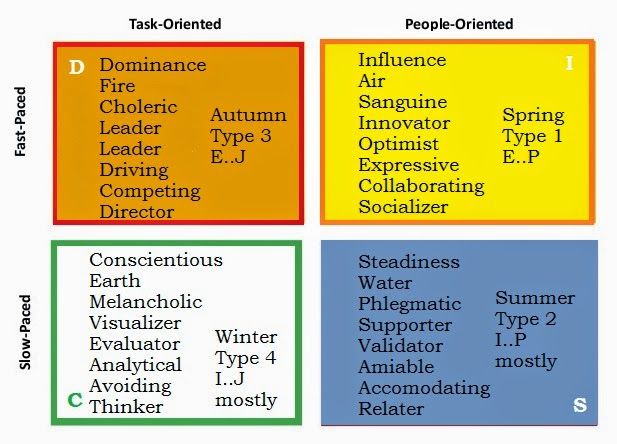Grieving a lost dog
Coping with the loss of a pet
When a beloved pet dies, the loss can bring grief and intense sorrow. By physically showing your grief, you actively mourn the death of your beloved pet. This active mourning helps move you on a journey toward reconciling with the loss of your pet.
What should you do?
Your journey of grief will not take on a prescribed pattern or series of stages. While you are actively mourning your loss, consider the following:
- Acknowledge the reality of the death—Acknowledging the full reality of your loss may take weeks or months, and will happen in a time that's right for you. Be kind to yourself as you adjust to life without your beloved pet. Just as it took time to build the relationship with your pet, it will take time to get used to him or her not being there.
- Move toward the pain—Experiencing your emotions following the death of a pet is difficult, but important. A healthier grief journey may come from taking your time to work through your feelings rather than trying to push them away or ignoring them.
- Continue your relationship through memories—Your memories allow your pets to live on in you. Embracing these memories, both happy and sad, can be a very slow and, at times, painful process that occurs in small steps. For example, take some time to look at past photos, write a tribute to your pet, or write your pet a letter recalling your time together.
- Adjust your self-identity—Part of your self-identity might come from being a pet owner. Others may also think of you in relation to your pet. You may be “the person who always walked the big black dog around the neighborhood” or “the friend whose cat always jumped on laps.” Adjusting to this change is a central need of mourning.
- Search for meaning—When a pet dies, it’s natural to question the meaning and purpose of pets in your life. Coming to terms with these questions is another need you must meet during your grief journey. Know that it's the asking, not the finding of concrete answers, that is important.

- Accept support from others—You need the love and support of others because you never "get over" grief. Talking or being with other pet owners who have experienced the death of a pet can be one important way to meet this need.
Things to remember
The experience of loss is different for everyone and can present unique challenges.
The deafening silence—The silence in your home after the death of a pet may seem excruciatingly loud. While your animal companion occupies physical space in your life and your home, many times their presence is felt more with your senses. When your pet is no longer there, the lack of their presence—the silence—can become piercing. It becomes the reality of the “presence of the absence.” Merely being aware of this stark reality will assist in preparing you for the flood of emotions.
The special bond with your pet—The relationship you shared with your pet is a special and unique bond, and some people might find it difficult to understand. You may have well-meaning friends and relatives who think you shouldn't mourn for your pet or tell you that you shouldn't be grieving so much because “it’s just a cat” or “just a dog.” Your grief is normal, and the relationship you shared with your special friend needs to be mourned.
You may have well-meaning friends and relatives who think you shouldn't mourn for your pet or tell you that you shouldn't be grieving so much because “it’s just a cat” or “just a dog.” Your grief is normal, and the relationship you shared with your special friend needs to be mourned.
Grief can’t be ranked—Sometimes our head gets in the way of our heart’s desire to mourn by trying to justify the depth of our emotion. Some people will want to “rank” their grief, comparing their grief emotions with others whose grief might be “worse.” While this is normal, your grief is your grief and deserves the care and attention of anyone who is experiencing a loss.
Questions of spirituality—During your grief journey, you may find yourself questioning your beliefs regarding pets and an after-life. Many people around you will also have their own opinions. It will be important during this time for you to find the answers right for you and your individual and personal beliefs.
This information is based on AVMA's client brochure, Pet Loss and Grief, developed with help from Coleen A. Ellis, CT, CPLP.
Coping with Losing a Pet
grief & loss
It’s natural to feel devastated by feelings of grief and sadness when a beloved dog, cat, or other pet dies. These tips can help you cope.
Why does the loss of a pet hurt so much?
Many of us share an intense love and bond with our animal companions. For us, a pet is not “just a dog” or “just a cat,” but rather a beloved member of our family, bringing companionship, fun, and joy to our lives. A pet can add structure to your day, keep you active and social, help you to overcome setbacks and challenges in life, and even provide a sense of meaning or purpose. So, when a cherished pet dies, it’s normal to feel racked by grief and loss.
The pain of loss can often feel overwhelming and trigger all sorts of painful and difficult emotions. While some people may not understand the depth of feeling you had for your pet, you should never feel guilty or ashamed about grieving for an animal friend.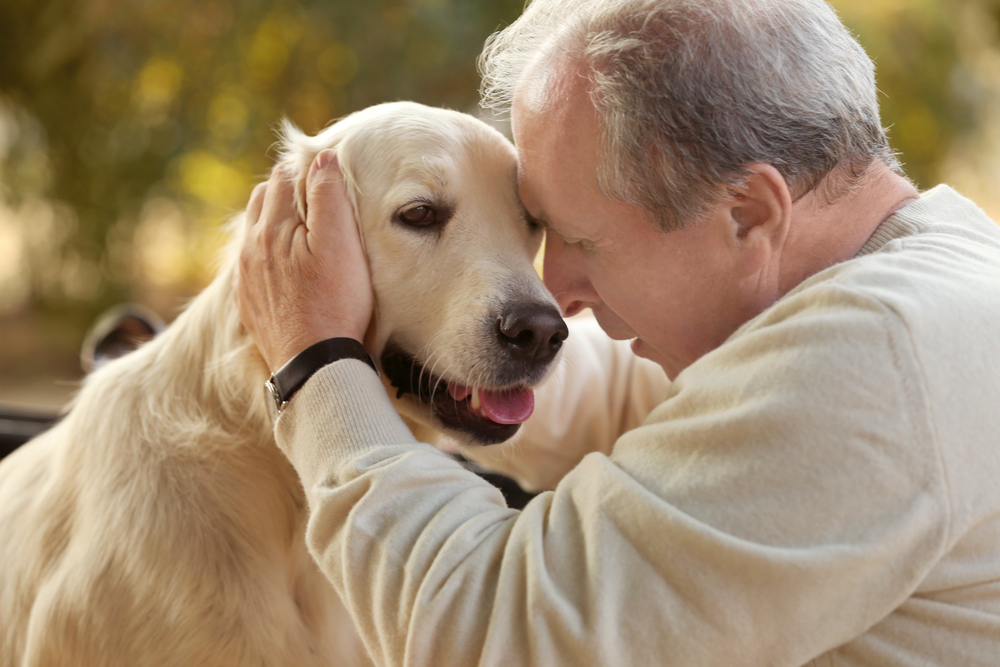
While we all respond to loss differently, the level of grief you experience will often depend on factors such as your age and personality, the age of your pet, and the circumstances of their death. Generally, the more significant your pet was to you, the more intense the emotional pain you’ll feel.
The role the animal played in your life can also have an impact. For example, if your pet was a working dog, service animal, or therapy animal, you’ll not only be grieving the loss of a companion but also the loss of a coworker, the loss of your independence, or the loss of emotional support. If you lived alone and the pet was your only companion, coming to terms with their loss can be even harder. And if you were unable to afford expensive veterinary treatment to prolong your pet’s life, you may even feel a profound sense of guilt.
While experiencing loss is an inevitable part of owning a pet, there are healthy ways to cope with the pain, come to terms with your grief, and when the time is right, perhaps even open your heart to another animal companion.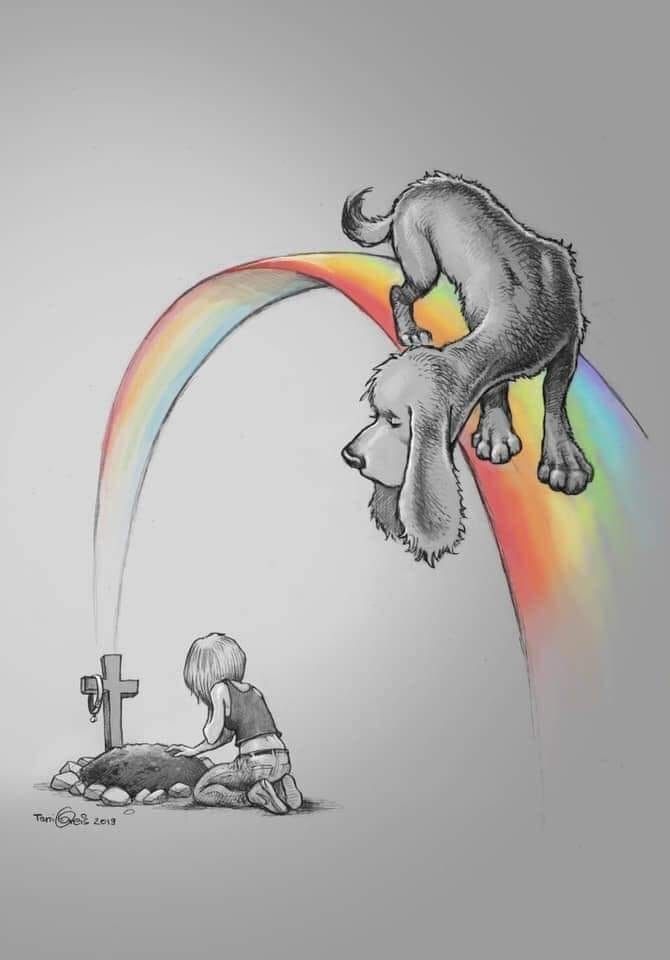
With over 25,000 licensed counselors, BetterHelp has a therapist that fits your needs. It's easy, affordable, and convenient.
GET 20% OFF
Online-Therapy.com is a complete toolbox of support, when you need it, on your schedule. It only takes a few minutes to sign up.
GET 20% OFF
Teen Counseling is an online therapy service for teens and young adults. Connect with your counselor by video, phone, or chat.
GET 20% OFF
The grieving process after the loss of a pet
Grieving is a highly individual experience. Some people find grief following the loss of a pet comes in stages, where they experience different feelings such as denial, anger, guilt, depression, and eventually acceptance and resolution. Others find that their grief is more cyclical, coming in waves, or a series of highs and lows. The lows are likely to be deeper and longer at the beginning and then gradually become shorter and less intense as time goes by. Still, even years after a loss, a sight, a sound, or a special anniversary can spark memories that trigger a strong sense of grief.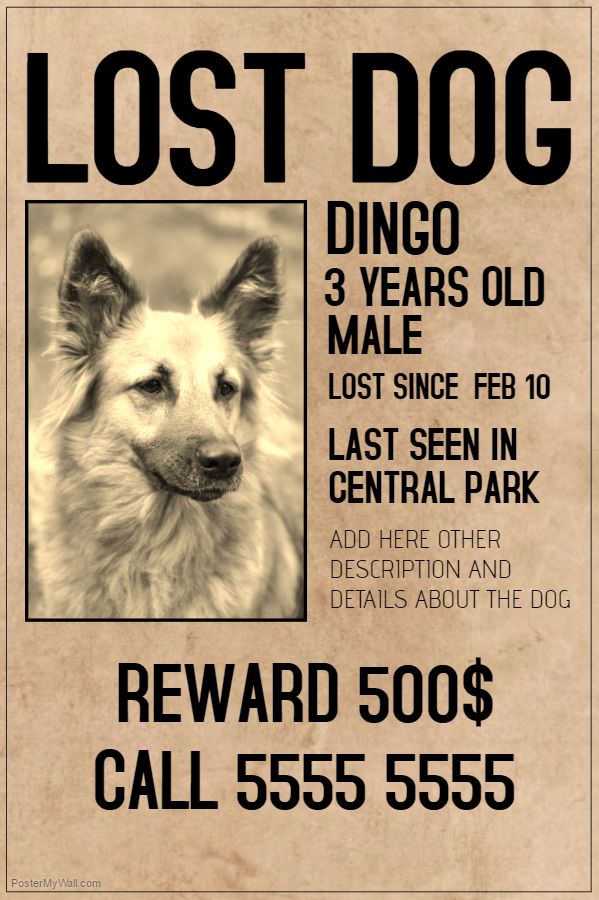
The grieving process happens only gradually. It can't be forced or hurried—and there is no “normal” timetable for grieving. Some people start to feel better in weeks or months. For others, the grieving process is measured in years. Whatever your grief experience, it's important to be patient with yourself and allow the process to naturally unfold.
Feeling sad, shocked, or lonely is a normal reaction to the loss of a beloved pet. Exhibiting these feelings doesn't mean you are weak or your feelings are somehow misplaced. It just means that you're mourning the loss of an animal you loved, so you shouldn't feel ashamed.
Trying to ignore your pain or keep it from surfacing will only make it worse in the long run. For real healing, it is necessary to face your grief and actively deal with it. By expressing your grief, you'll likely need less time to heal than if you withhold or “bottle up” your feelings. Write about your feelings and talk about them with others who are sympathetic to your loss.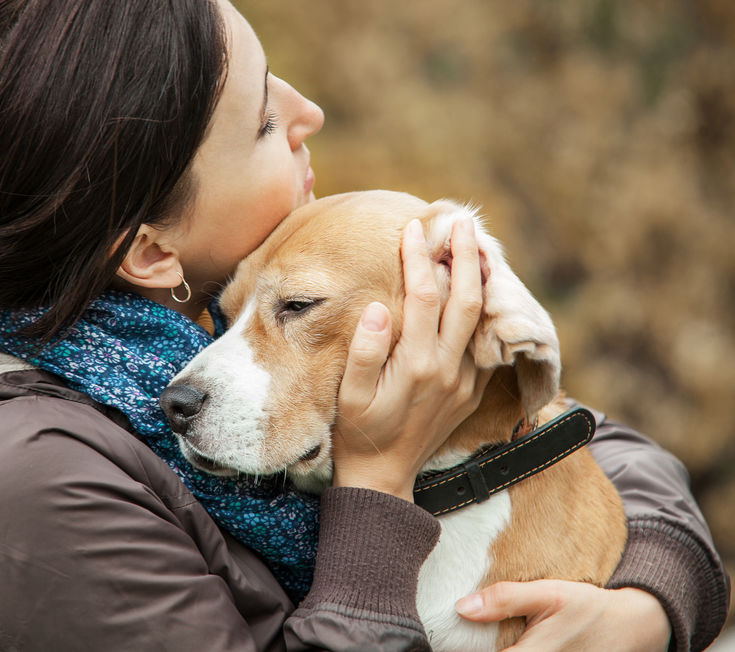
Coping with the grief of pet loss
Sorrow and grief are normal and natural responses to death. Like grief for our friends and loved ones, grief for our animal companions can only be dealt with over time, but there are healthy ways to cope with the pain. Here are some suggestions:
Don't let anyone tell you how to feel, and don't tell yourself how to feel either. Your grief is your own, and no one else can tell you when it's time to “move on” or “get over it.” Let yourself feel whatever you feel without embarrassment or judgment. It's okay to be angry, to cry or not to cry. It's also okay to laugh, to find moments of joy, and to let go when you're ready.
Reach out to others who have lost pets. Check out online message boards, pet loss hotlines, and pet loss support groups—see the Resources section below for details. If your own friends and family members are not sympathetic about pet loss, find someone who is. Often, another person who has also experienced the loss of a beloved pet may better understand what you're going through.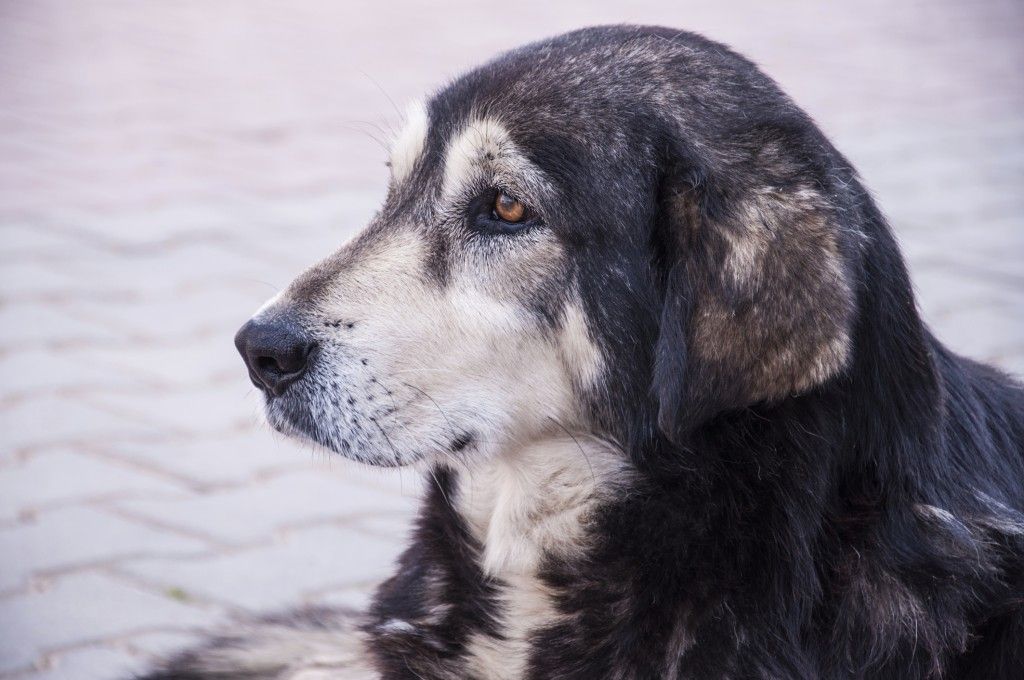
Rituals can help healing. A funeral can help you and your family members openly express your feelings. Ignore people who think it's inappropriate to hold a funeral for a pet, and do what feels right for you.
Create a legacy. Preparing a memorial, planting a tree in memory of your pet, compiling a photo album or scrapbook, or otherwise sharing the memories you enjoyed with your pet, can create a legacy to celebrate the life of your animal companion. Remembering the fun and love you shared with your pet can help you to eventually move on.
Look after yourself. The stress of losing a pet can quickly deplete your energy and emotional reserves. Looking after your physical and emotional needs will help you get through this difficult time. Spend time face to face with people who care about you, eat a healthy diet, get plenty of sleep, and exercise regularly to release endorphins and help boost your mood.
If you have other pets, try to maintain your normal routine. Surviving pets can also experience loss when a pet dies, or they may become distressed by your sorrow. Maintaining their daily routines, or even increasing exercise and play times, will not only benefit the surviving pets but can also help to elevate your mood and outlook, too.
Surviving pets can also experience loss when a pet dies, or they may become distressed by your sorrow. Maintaining their daily routines, or even increasing exercise and play times, will not only benefit the surviving pets but can also help to elevate your mood and outlook, too.
Seek professional help if you need it. If your grief is persistent and interferes with your ability to function, your doctor or a mental health professional can evaluate you for depression.
Dealing with the loss of a pet when others devalue your loss
One aspect that can make grieving for the loss of a pet so difficult is that pet loss is not appreciated by everyone. Some friends and family may say, “What's the big deal? It's just a pet!” Some people assume that pet loss shouldn't hurt as much as human loss, or that it is somehow inappropriate to grieve for an animal. They may not understand because they don't have a pet of their own or are unable to appreciate the companionship and love that a pet can provide.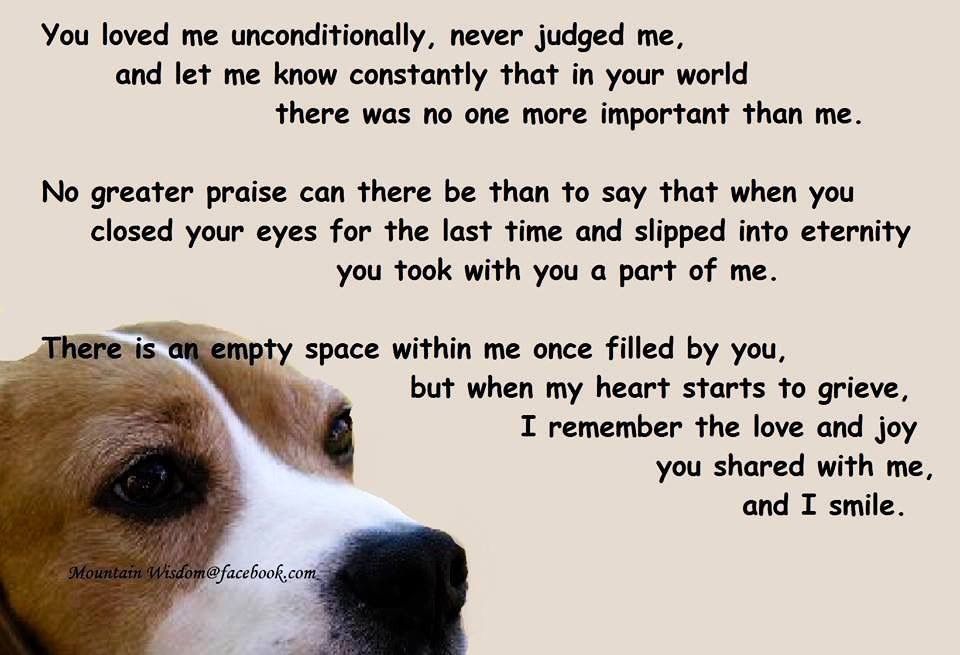
- Don't argue with others about whether your grief is appropriate or not.
- Accept the fact that the best support for your grief may come from outside your usual circle of friends and family members.
- Seek out others who have lost pets; those who can appreciate the magnitude of your loss, and may be able to suggest ways of getting through the grieving process.
Tips for seniors grieving the death of a pet
As we age, we experience an increasing number of major life changes, including the loss of beloved friends, family members, and pets. The death of a pet can hit retired seniors even harder than younger adults who may be able to draw on the comfort of a close family, or distract themselves with the routine of work. If you're an older adult living alone, your pet was probably your sole companion, and taking care of the animal provided you with a sense of purpose and self-worth.
Stay connected with friends. Pets, dogs especially, can help seniors meet new people or regularly connect with friends and neighbors while out on a walk or in the dog park.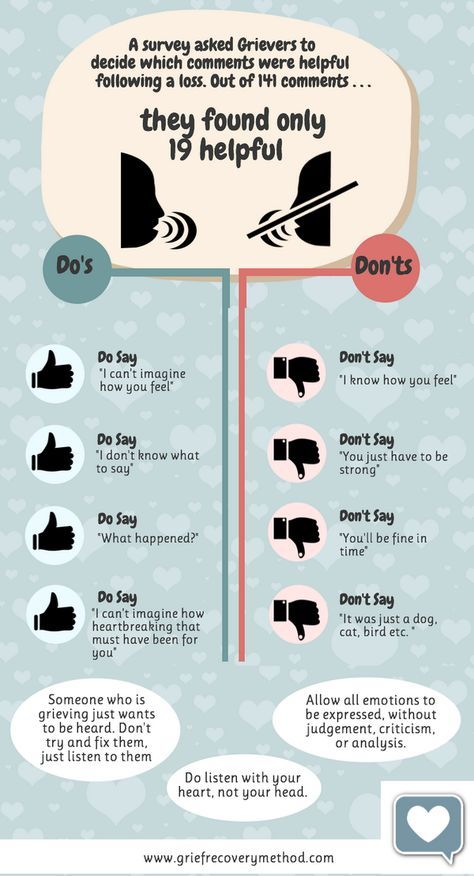 Having lost your pet, it's important that you don't now spend day after day alone. Try to spend time with at least one person every day. Regular face-to-face contact can help you ward off depression and stay positive. Call up an old friend or neighbor for a lunch date or join a club.
Having lost your pet, it's important that you don't now spend day after day alone. Try to spend time with at least one person every day. Regular face-to-face contact can help you ward off depression and stay positive. Call up an old friend or neighbor for a lunch date or join a club.
Boost your vitality with exercise. Pets help many older adults stay active and playful, which can boost your immune system and increase your energy. It's important to keep up your activity levels after the loss of your pet. Check with your doctor before starting an exercise program and then find an activity that you enjoy. Exercising in a group—by playing a sport such as tennis or golf, or taking an exercise or swimming class—can also help you connect with others.
Try to find new meaning and joy in life. Caring for a pet previously occupied your time and boosted your morale and optimism. Try to fill that time by volunteering, picking up a long-neglected hobby, taking a class, helping friends, rescue groups, or homeless shelters care for their animals, or even by getting another pet when the time feels right.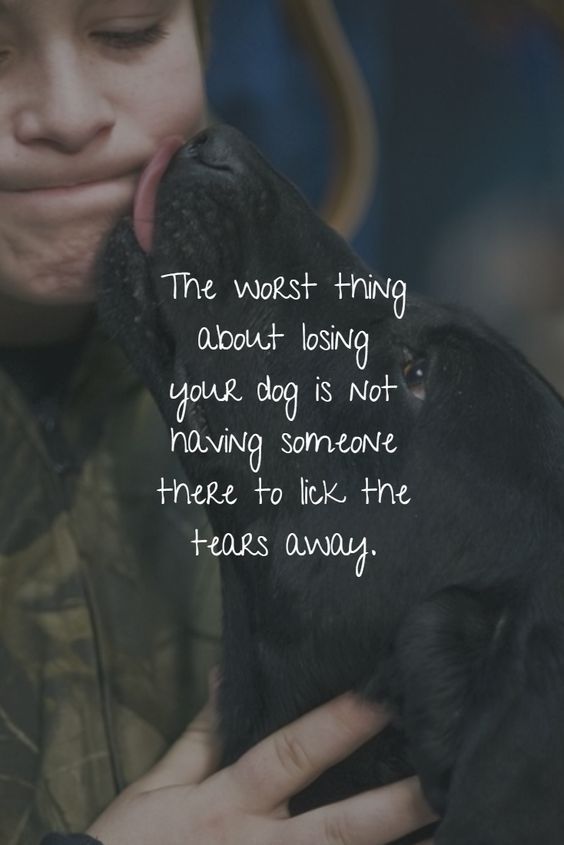
Helping children grieve the loss of a pet
The loss of a pet may be your child's first experience of death—and your first opportunity to teach them about coping with the grief and pain that inevitably accompanies the joy of loving another living creature. Losing a pet can be a traumatic experience for any child. Many kids love their pets very deeply and some may not even remember a time in their life when the pet wasn't around. A child may feel angry and blame themselves—or you—for the pet's death. A child may feel scared that other people or animals they love may also leave them. How you handle the grieving process can determine whether the experience has a positive or negative effect on your child's personal development.
Some parents feel they should try to shield their children from the sadness of losing a pet by either not talking about the pet's death, or by not being honest about what's happened. Pretending the animal ran away, or “went to sleep,” for example, can leave a child feeling even more confused, frightened, and betrayed when they finally learn the truth.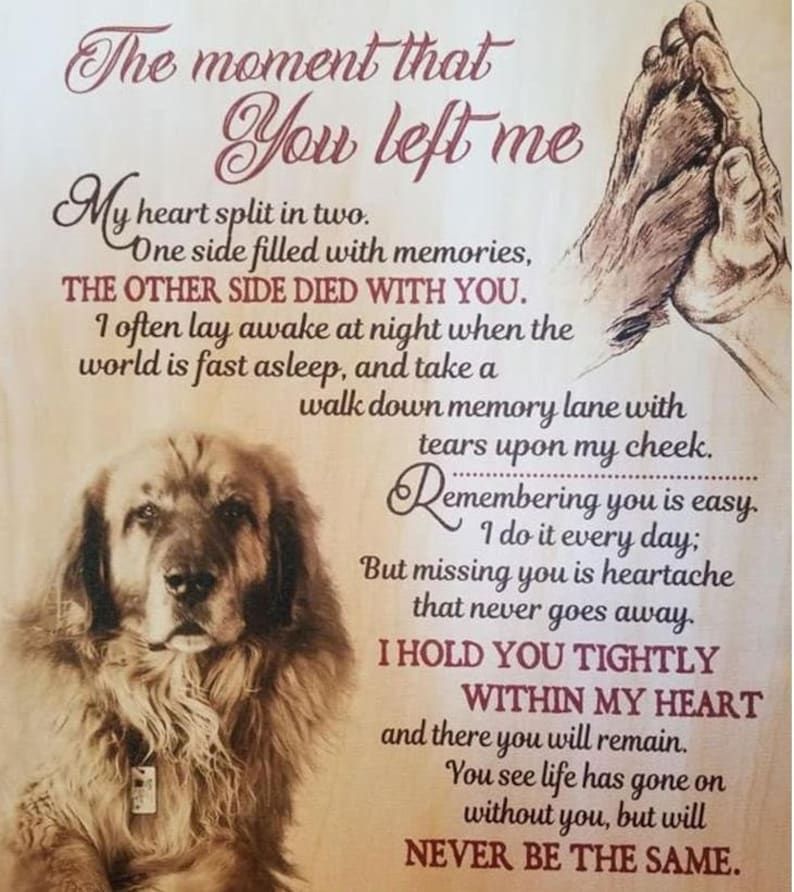 It's far better to be honest with children and allow them the opportunity to grieve in their own way.
It's far better to be honest with children and allow them the opportunity to grieve in their own way.
Let your child see you express your own grief at the loss of the pet. If you don't experience the same sense of loss as your child, respect their grief and let them express their feelings openly, without making them feel ashamed or guilty. Children should feel proud that they have so much compassion and care deeply about their animal companions.
Reassure your child that they weren't responsible for the pet's death. The death of a pet can raise a lot of questions and fears in a child. You may need to reassure your child that you, their parents, are not also likely to die. It's important to talk about all their feelings and concerns.
Involve your child in the dying process. If you've chosen euthanasia for your pet, be honest with your child. Explain why the choice is necessary and give the child chance to spend some special time with the pet and say goodbye in their own way.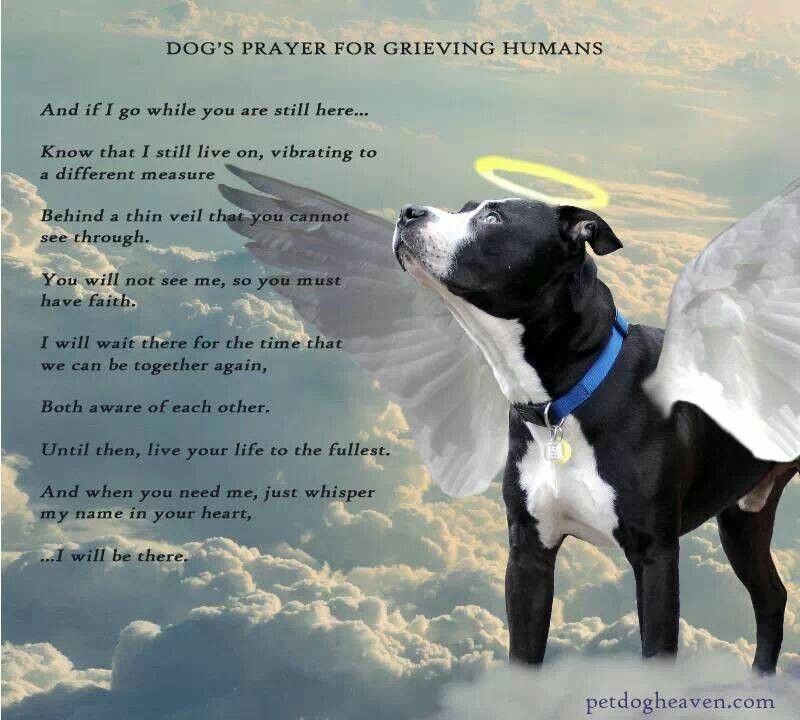
If possible, give the child an opportunity to create a memento of the pet. This could be a special photograph, or a plaster cast of the animal's paw print, for example.
Allow the child to be involved in any memorial service, if they desire. Holding a funeral or creating a memorial for the pet can help your child express their feelings openly and help process the loss.
Do not rush out to get the child a “replacement pet” before they've had a chance to grieve the loss they feel. Your child may feel disloyal, or you could send the message that the grief and sadness felt when something dies can simply be overcome by buying a replacement.
Making the decision to put a pet to sleep
Deciding to put your animal companion to sleep is one of the most difficult decisions you will ever have to make for your pet. As a loving pet owner, though, the time may come when you need to help your pet make the transition from life to death, with the help of your veterinarian, in as painless and peaceful a way as possible.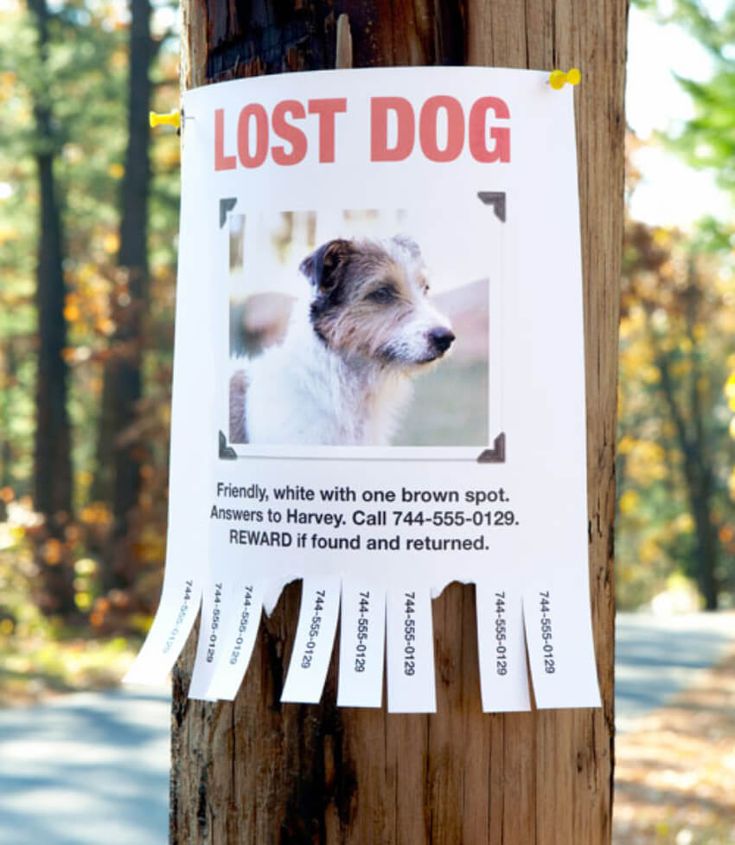
Knowing when it's time to put a pet to sleep
Euthanasia for a beloved pet is highly personal decision and usually comes after a diagnosis of a terminal illness and with the knowledge that the animal is suffering badly. Your choices for your pet should be informed by the care and love you feel for the animal. Important things to consider include:
Activity level. Does your pet still enjoy previously loved activities or are they able to be active at all?
Response to care and affection. Does your pet still interact and respond to love and care in the usual ways?
Amount of pain and suffering. Is your pet experiencing pain and suffering which outweigh any pleasure and enjoyment in life?
Terminal illness or critical injury. Have illness or injury prohibited your pet from enjoying life? Is your pet facing certain death from the injury or illness?
Your family's feelings. Is your family unanimous in the decision? If not, and you still feel it is the best thing for your pet, can you live with the decision that you have to make?
If you do decide that ending the suffering is in your pet's best interest, take your time to create a process that is as peaceful as possible for you, your pet, and your family.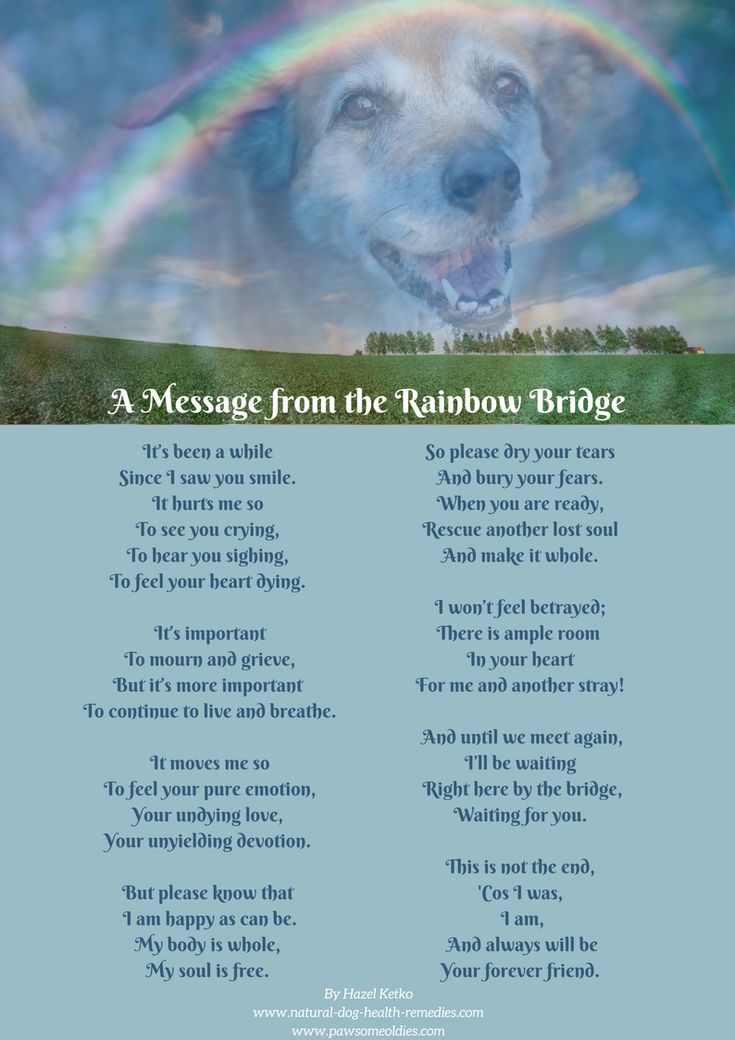 You may want to have a last day at home with the pet in order to say goodbye, or to visit the pet at the animal hospital. You can also choose to be present during your pet's euthanasia, or to say goodbye beforehand and remain in the veterinary waiting room or at home. This is an individual decision for each member of the family.
You may want to have a last day at home with the pet in order to say goodbye, or to visit the pet at the animal hospital. You can also choose to be present during your pet's euthanasia, or to say goodbye beforehand and remain in the veterinary waiting room or at home. This is an individual decision for each member of the family.
What to expect when putting your pet to sleep
According to the American Veterinary Medical Association, euthanasia for a pet is most often achieved by injection of a death-inducing drug. The veterinarian may administer a tranquilizer first to relax your pet. Following the injection of the euthanasia drug, your pet will immediately become unconscious. Death is quick and painless. Your pet may move its legs or breathe deeply several times after the drug is given, but these are reflexes and don't mean that your pet is in pain or is suffering.
How to explain pet euthanasia to a child
Be honest. Start by explaining that your pet is ill, suffering badly, and that you have the ability to end that suffering in a very humane and gentle way. The injection is a very peaceful and painless process for your pet. Sometimes, when you really love a pet, you have to make these kinds of difficult decisions to spare the animal from more pain and suffering.
The injection is a very peaceful and painless process for your pet. Sometimes, when you really love a pet, you have to make these kinds of difficult decisions to spare the animal from more pain and suffering.
- Children tend to feed off of how their parents react. If you're hysterical or feel it's the wrong decision, your child will likely react in a similar way. If you're sad, and deal with that sadness in a healthy way, your child will follow your example.
- As long as you're putting your beloved pet to sleep for the right reasons, tell your children that it is OK to feel sad, but there's no need to feel guilty. You should feel sad, and your children can feel the sadness, but don't mix guilt in with the sadness. One emotion is healthy, the other terribly burdensome.
Getting another dog or cat after pet loss
There are many wonderful reasons to once again share your life with a companion animal, but the decision of when to do so is a very personal one. It may be tempting to rush out and fill the void left by your pet's death by immediately getting another pet. In most cases, it's best to mourn the old pet first, and wait until you're emotionally ready to open your heart and your home to a new animal. You may want to start by volunteering at a shelter or rescue group. Spending time caring for pets in need is not only great for the animals, but can help you decide if you're ready to own a new pet.
Some retired seniors living alone may find it hardest to adjust to life without a pet. If taking care of an animal provided you with a sense of purpose and self-worth as well as companionship, you may want to consider getting another pet at an earlier stage. Of course, seniors also need to consider their own health and life expectancy when deciding on a new pet. Again, volunteering to help pets in need can be a good way to decide if you're ready to become a pet owner again.
Authors: Lawrence Robinson, Jeanne Segal, Ph.D., and Robert Segal, M. A.
A.
- References
Depressive Disorders.(2013). In Diagnostic and Statistical Manual of Mental Disorders. American Psychiatric Association. https://doi.org/10.1176/appi.books.9780890425787.x04_Depressive_Disorders
Zisook, S., & Shear, K. (2009). Grief and bereavement: What psychiatrists need to know. World Psychiatry, 8(2), 67–74. https://doi.org/10.1002/j.2051-5545.2009.tb00217.x
Stroebe, M., Schut, H., & Stroebe, W. (2007). Health outcomes of bereavement. The Lancet, 370(9603), 1960–1973. https://doi.org/10.1016/S0140-6736(07)61816-9
Simon, N. M., Wall, M. M., Keshaviah, A., Dryman, M. T., LeBlanc, N. J., & Shear, M. K. (2011). Informing the symptom profile of complicated grief.
Depression and Anxiety, 28(2), 118–126. https://doi.org/10.1002/da.20775
Corr, C. A. (1999). Enhancing the Concept of Disenfranchised Grief. OMEGA – Journal of Death and Dying, 38(1), 1–20. https://doi.org/10.2190/LD26-42A6-1EAV-3MDN
Cleary, Michelle, Sancia West, Deependra K. Thapa, Mark Westman, Kristina Vesk, and Rachel Kornhaber. “Grieving the Loss of a Pet: A Qualitative Systematic Review.” Death Studies 0, no. 0 (April 21, 2021): 1–12. https://doi.org/10.1080/07481187.2021.1901799
Cordaro, Millie. “Pet Loss and Disenfranchised Grief: Implications for Mental Health Counseling Practice.” Journal of Mental Health Counseling 34, no. 4 (September 24, 2013): 283–94. https://doi.org/10.17744/mehc.34.4.41q0248450t98072
Coping With Death of Pet – Understanding pet loss grief and how to cope with the pain and sadness. (Recover-from-grief.com)
End of Life Care – Coping with the impending loss of a pet. (ASPCA)
Coping With the Death of Your Pet – Tips on how to cope when it's time to say goodbye to a beloved pet. (The Humane Society of the United States)
(The Humane Society of the United States)
Euthanasia of a Beloved Pet – Better understand and deal with euthanasia. (The Association for Pet Loss and Bereavement)
How to Walk a Shelter Pet – Article about walking shelter dogs. Also offers a directory of shelters and rescue groups in the U.S. where you can volunteer to help care for cats and dogs. (Petfinder)
Helplines and support
In the U.S.: Call the ASPCA Pet Loss Hotline at 877-474-3310
In the UK: Call the Pet Bereavement Support Service at 0800 096 6606.
In other countries: Visit Chance's Spot to find support near you.
Last updated: December 5, 2022
Comments on the material The dog died on the Aeroflot plane Chelyabinsk - Moscow: cause of death, details, May 13, 2022 | 74.ru
All newsIntercity buses canceled in Chelyabinsk due to icy roads
Huge interest! Two mysterious businessmen paid off the debt of a grandmother who lived on a thousand a month
What kind of fairy-tale hero are you: a comic test that will determine how you better manage your money
Will QR codes be returned in Russia because of the flu and SARS? Answered by Rospotrebnadzor
SARS, swine flu or covid? The doctor told what symptoms should cause an ambulance
Natalya Kotova announced threats to her employees responsible for the demolition of kiosks in Chelyabinsk
After the scandalous blogger was detained, the head of the Chelyabinsk police appealed to officials and businessmen this is a Russian”: the story of an IT specialist who returned from Kazakhstan
Tandem of theory and practice: law enforcers and legal scholars met at SUSU
A school bus overturned in the Chelyabinsk region
"There are accidents in the morning - and a lot": the mayor's office reported on the targeted removal of snow removal equipment from the roads
Is it true that tangerines with leaves taste better? Parsing popular myths and choosing the main New Year's fruit
A 23-year-old Lada driver died in a collision of three cars on a highway in the Chelyabinsk region
10 interesting questions that only experts in geography can answer
Chelyabinsk residents will be returned 120% bonuses for ordering food
MMK introduced a “digital” test site for modeling production technology
“Under shelling, sitting in trenches, mines flying”: how the family of a mobilized student is trying to bring him home
“I have not parted with the dream of Olympic gold”: Denis Yartsev — on the revival of Chelyabinsk judo
Road workers switched to lean manufacturing technologies — what Chelyabinsk won
Seven gold medals and master classes with champions: an overview of the most striking sporting events of the outgoing year
Wow, so many gadgets under the Christmas tree: most South Urals people dream of getting equipment for the New Year
Rebirth: a year of ASKO’s work together with Yugoria has passed
The results of the first year of the decade of science and technology have been summed up at SUSU Chelyabinsk airport delayed all night flights
In Chelyabinsk, a pensioner was charged with a debt of 30 thousand for electricity in a communal apartment she sold two years ago
Up to 35 years and that's it? 6 uncomfortable questions for gynecologists - we find out when it is actually time to give birth
Tank car dealer appeared in Chelyabinsk. These off-road vehicles will replace the Land Cruiser and Jeep
"The player's horse got in the neck": the hockey player of the teenage Chelyabinsk team was urgently operated on after the match
Rejoice, Messi! Argentina beat France and became the world football champion
In Chelyabinsk, a second criminal case was opened against a scandalous blogger, according to the management of a well-known restaurant chain
From passion to an unpleasant neighborhood: how they fell in love, divorced and did not part Garik Kharlamov and Christina Asmus
“I believe that the changes are for the better”: Putin addressed the Russian Movement of Children and Youth
SMS mailings about the shelling began in the Belgorod Region: NVO news for December 18
From work as a security guard to the Nika award: how he achieved success actor Alexander Pal
From a couple of pieces to several hundred: we look where Chelyabinsk residents fished and what kind of catch they brag about in social networks
Messi's Cup! Argentina beat France on penalties to win World Cup
“In the morning the police went from door to door”: in Chelyabinsk a man died after falling from the 17th floor with a statement on the blogger who staged the mass terror of Chelyabinsk establishments
All news
Comments on the material Oleg Potapov, who shot the husky in front of the mistress in a quarry near Chelyabinsk, pleaded guilty and decided to compensate for the damage July 8, 2020 | 74.
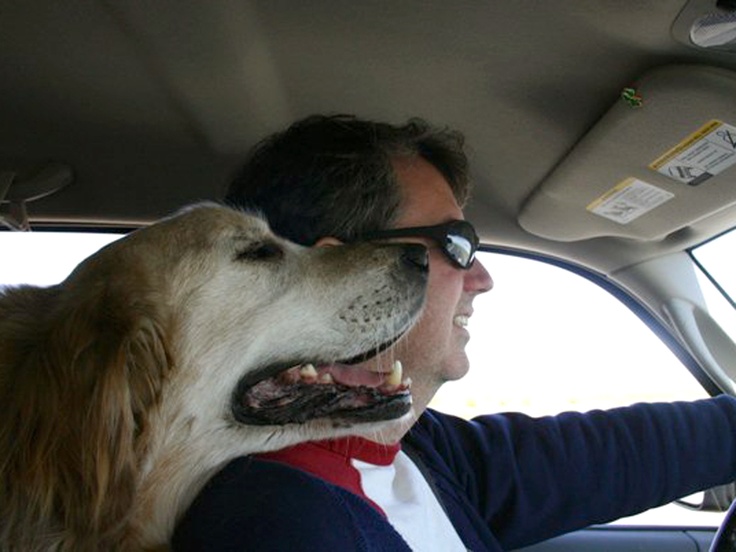 ru All news
ru All news Intercity buses canceled in Chelyabinsk due to icy roads
Huge interest! Two mysterious businessmen paid off the debt of a grandmother who lived on a thousand a month
What kind of fairy-tale hero are you: a comic test that will determine how you better manage your money
Will QR codes be returned in Russia because of the flu and SARS? Rospotrebnadzor answers
SARS, swine flu or covid? The doctor told what symptoms you need to call an ambulance0003
Natalya Kotova announced threats to her employees responsible for the demolition of kiosks in Chelyabinsk
After the scandalous blogger was detained, the head of the Chelyabinsk police appealed to officials and businessmen of Kazakhstan
A tandem of theory and practice: law enforcers and legal scholars met at SUSU
A school bus overturned in the Chelyabinsk region
“There are accidents in the morning, and a lot”: City Hall reported on the targeted removal of snow removal equipment from the roads
Is it true that tangerines with leaves taste better? Parsing popular myths and choosing the main New Year's fruit
A 23-year-old Lada driver died in a collision of three cars on a highway in the Chelyabinsk region
10 interesting questions that only experts in geography can answer
Chelyabinsk residents will be returned 120% bonuses for ordering food
MMK introduced a “digital” testing ground for modeling production technology
“Under shelling, sitting in trenches, mines flying”: how the family of a mobilized student is trying to bring him home
“I have not parted with the dream of Olympic gold”: Denis Yartsev on the revival of Chelyabinsk judo
The road builders switched to lean production technologies, which Chelyabinsk won
Seven gold medals and master classes with champions: an overview of the most striking sporting events of the outgoing year
Wow, so many gadgets under the Christmas tree: most of the South Urals dream of getting equipment for the New Year
Rebirth: a year has passed ASKO together with Yugoria
The results of the first year of the decade of science and technology were summed up at SUSU
All night flights were delayed at the Chelyabinsk airport due to bad weather
In Chelyabinsk, a pensioner was charged a debt of 30,000 for electricity in a communal apartment she sold two years ago
Up to 35 years and that's it? 6 uncomfortable questions for gynecologists - find out when it is actually time to give birth
Tank car dealer appeared in Chelyabinsk.